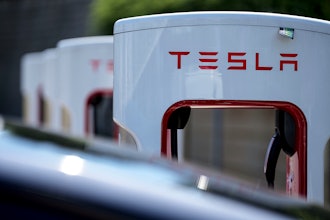LUXEMBOURG (AP) -- EU governments were split Thursday over the best way for the 27-nation bloc to cut greenhouse gas emissions.
Germany said a plan to slash car emissions by 2012 was unfair to its automobile industry, which makes vehicles that tend to be faster, bigger, heavier and more polluting than those of other EU nations.
Sigmar Gabriel, the German environment minister, said German car makers would have to reduce car emissions by as much as 40 percent by 2012 under the plan.
"We are prepared to do what we can do," he told a webcast meeting of EU environment ministers, but said it was harder for Germany than Italy which he said made light, small cars that already just about meet the 2012 emission limit.
"We have to be honest and open with each other here," Gabriel said. "We have very different interests."
The Berlin government is under pressure from Germany's powerful car lobby -- led by car makers Volkswagen, BMW and Mercedes -- to weaken the emissions plan or push its deadline to 2015.
The 2012 target of 130 grams of carbon-dioxide emission per kilometer would be an average of all models a car maker produces. The EU plan sets a long-term 2015 goal of 95 grams of carbon-dioxide per kilometer.
Melanie Francis, a spokeswoman for the environmental pressure group Greenpeace, urged EU governments to "take a firm stand against the car lobby and their stone-age demands."
"Giving into them as the German government seems to have done, could undermine the EU's ability to meet its 2020 climate targets," she added. "Chancellor Merkel has talked tough on climate change, but faced with the need to take decisive action within Germany she and Minister Gabriel are coming up short."
The plan is a result of last year's ambitious pledge by EU leaders to cut the bloc's overall greenhouse gas emissions by 20 percent below 1990 levels by 2020 or by 30 percent if the United States, Japan and others join Europe in a global international emissions trading scheme.
The emissions cuts, together with energy savings and the promotion of clean energies, is part of a package of measures that EU wants to see adopted by year's end.
On Thursday, World Environment Day, East European nations pushed for a rewrite of a plan to slash the EU's industrial greenhouse gas emissions by 20 percent compared to 2005.
Hungary and six others said insisted the reference year should be 1990 saying their 2005 emissions were exceptionally low as a result of the collapse of their Communist-era industries.
"The reduction rate (in industrial greenhouse gas emissions) should be the same for all countries," said Lajos Olah, the deputy Hungarian Environment Minister.






















